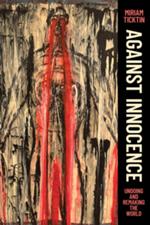In Against Innocence, Ticktin shows how innocence structures political relationships, designating some as victims and others as “saviors” who, conveniently, claim innocence themselves, absolving themselves of responsibility and foreclose the achievement of a more genuine, lasting form of justice. Ultimately, Ticktin wants to understand how the discourse around innocence functions, what gives it such power, and why we are so compelled by it. She examines this process across various domains, including migration, reproductive rights, racial justice, medicine, environmentalism, and more. Throughout the book, she shows how the concept of innocence intimately shapes why and how we should care, for whom, and whose lives matter–and how this can have devastating consequences, when only an exceptional few can qualify as innocent. A politics grounded on innocence justifies a world built on inequality, designating most people–especially the racialized poor–as unworthy, undeserving, and less than human. As an alternative, she explores the aesthetics and politics of “commoning”–a collective regime of living that refuses a liberal politics of individual identity and victimhood.

Against innocence
ISBN: 9780226838755
Format: Paperback
Publisher: University Of Chicago Press
Origin: US
Release Date: January, 2026
158590

